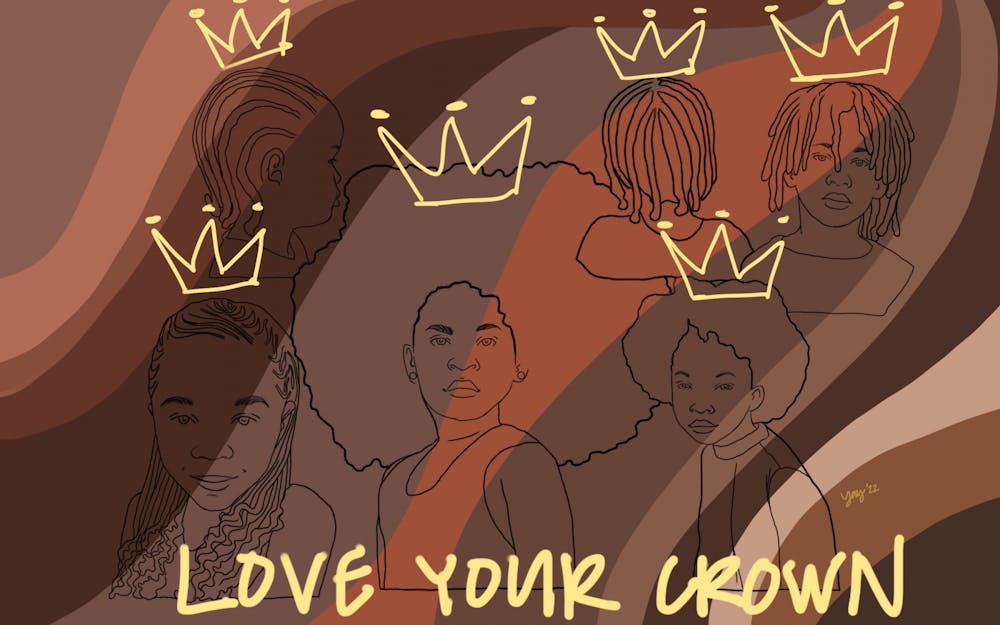A new Illinois law banning hair discrimination is named after a 4-year-old Black boy named Gus “Jett” Hawkins. Officials at Hawkins’ school told him his braids violated the school’s dress code.
The dress code stated afros or short hairstyles were allowed. However, other natural hairstyles worn by many Black children such as braids, locs and twists were banned.
Hair discrimination is still embedded in the United States, and it continues to harm Black people, especially Black children. With the times we are in, as well as it being a new year, hair discrimination should no longer exist.
The Illinois governor signed the bill to ban hair discrimination in schools in August 2021, according to Chicago Sun-Times. The bill, which is effective as of Jan. 1, prohibits schools from enforcing policies on hairstyles historically associated with race or ethnicity.
This means schools in Illinois should no longer be able to ban natural hairstyles worn by Black children.
Every state should adopt laws to ban hair discrimination in schools. Black hair takes extensive and specific care. Black peoples’ hair is not all the same, it comes in different textures and lengths, and it can be styled in a multitude of ways.
Related: [Black Voices: The truth will come to light, America needs to face its history]
Hair for a lot of Black people tells a story or a journey. Things like the “big chop” or someone's “loc journey” have both spiritual and physical significance.
For some Black people, embracing their natural hair is an act of resistance against white supremacy. Many Black women have felt pressured over the years to use heat on their hair in order to assimilate and conform to European standards.
Most of this pressure is from schools and workplaces which don’t view Black hairstyles like braids, locs and afros as professional or neat.
"Black hair has a long history of being stigmatized and politicized," Lori Tharps, co-author of “Hair Story: Untangling the Roots of Black Hair in America,” said in The Washington Post in 2019.
There have been several instances where Black children were forced to cut their hair or penalized for their hairstyles.
In 2018, Faith Fennidy, an 11year-old Black girl was sent home from school because her braids had extensions. She was told her hair was unacceptable. The school had recently added a policy prohibiting extensions, weaves and clip-ins.
Black hair requires a specific type of care and management. Fennidy’s family tried to explain to the school her braided hair extensions helped maintain her natural hair. However, this wasn’t enough to allow her back in school. Fennidy’s family looked to enroll her in another school.
Related: [Black Voices: How it feels to be the only Black person in the room]
In 2019, Black teenager Andrew Johnson, was forced to cut his hair off during his wrestling match after officials said his hair covering for his locs didn’t conform to the rules.
There is no reason a child should be sent home because of their hair. It seems as if these rules about hair actively seek to punish Black children. These rules are harmful and make Black children internalize feelings of hate or disdain for their natural hair because they are punished for it.
For Black children, hair is a form of self-expression, which is critical in the development of a child. Taking that away can have self-damaging effects in the future.
There are no federal laws to ban hair discrimination, and there is currently no law in Indiana to ban hair discrimination in schools. This means there could hypothetically be some Black children in Indiana being punished for their hair.
It is imperative for more states to adopt hair-ban discrimination laws. These laws will provide a more healthy and safe environment for Black children to wear their hair freely without the worry of it being “against the rules.”






